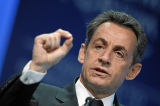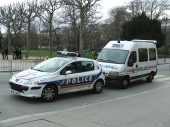
The average price of a new car in the Netherlands has soared above €50,000, placing car ownership out of reach for many Dutch consumers, according to the ANWB motorists association.
Industry data from the RAI Vereniging shows that new car prices have risen to €50,026 this year, a sharp increase from €38,500 in 2020.
This price surge is at odds with what most buyers are willing to spend. A survey by AutoTrack revealed that 81% of Dutch consumers plan to spend no more than €15,000 on their next car, with only 19% willing to pay more.
Edwin Timmer of ANWB highlighted the growing financial strain. “Driving is becoming increasingly expensive — not just the purchase price, but also ownership, maintenance, and fuel costs. Our members are concerned, and we share their worries,” he told AD.
Professor Bert van Wee of TU Delft noted that this price increase significantly outpaces inflation. “In 2005, a new car averaged €24,608. Adjusted for 56% inflation, that would be €38,388 today — still far below the current €50,026,” he explained.
The rise in prices reflects modern cars’ enhanced technology and safety features, Van Wee added. RAI’s Frits van Bruggen pointed out that today’s cars are nearly twice as heavy as models from 50 years ago, largely due to safety and comfort advancements such as airbags, ABS, crumple zones, air conditioning, cameras, and internet connectivity. “We’ve come to expect these features, but they add to the price,” he said.
Despite rising prices, Van Wee argued that used cars aged six to eight years can still serve reliably for up to a decade, keeping ownership costs manageable. While the average price of a new gasoline car remains at €34,884 — similar to 2005 levels — electric and hybrid vehicles are much pricier, averaging €50,019 and €71,599, respectively.
Affordability has shifted over the years. In 1975, the average income was €10,437, with a new car costing €5,002. Today, the average income is €46,500, yet new car prices now exceed that amount, marking a significant affordability gap.
Taxes also heavily impact car prices. Van Bruggen explained that buyers pay around 34% in BPM and VAT on gasoline cars, and 28% on hybrids. The RAI is advocating for a reduction in BPM taxes, proposing a shift to a mileage-based environmental tax to maintain affordable mobility.
Private car leasing is on the rise, now accounting for 35% of privately acquired new cars. Car ownership overall has increased steadily — from 34.5% of adults in 1975 to 63.8% in 2024. However, since 2007, sales of secondhand cars have surged, while new car sales have continued to decline, Rabo Research economist Igor Džambo noted. Photo by GENR12, Wikimedia commons.








































